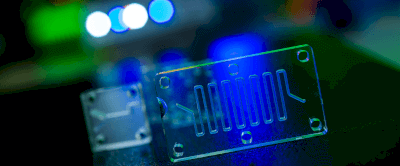All Categories
History



This section provides an overview for microdevices as well as their applications and principles. Also, please take a look at the list of 3 microdevice manufacturers and their company rankings. Here are the top-ranked microdevice companies as of February, 2026: 1.Philips Engineering Solutions.
Table of Contents
 A microdevice is a microchannel or reaction cell on a chip that is used for chemical reactions such as mixing, reaction, extraction, and phase separation of solutions.
A microdevice is a microchannel or reaction cell on a chip that is used for chemical reactions such as mixing, reaction, extraction, and phase separation of solutions.
Since the width of the channel is about a micrometer, the amount of reagent flowing through it can be kept small, and the reaction time can be shortened. The application of MEMS technology, described below, enables mass production of devices and the disposable use of used chips. This enables low-cost experiments and contributes to the development of academic fields such as chemistry and biochemistry.
Microdevices are used to perform various chemical and biochemical experiments using minute amounts of sample reagents.
The chip-like microstructure of microdevices enables the handling, observation, and cultivation of cells and microorganisms one by one. As a result, various biochemical properties of cellular tissues have been revealed.
Microstructures are also used to study the properties of droplets formed by mixing two different solutions (water, oil, etc.), and are expected to be applied to biology and other fields.
Microdevices are microfabricated microchannels or reaction cells created on a chip using a microfabrication technique called MEMS.
MEMS stands for Micro-Electro-Mechanical System and is applied to semiconductor integration technology. Various structures are created by applying techniques such as etching, UV irradiation, and film deposition. In addition, chemical reactions and heat treatment are combined to enhance the precision of processing. These technologies enable the creation of micrometer- to sub-micrometer-scale fine structures on substrates.
In the case of electronic devices, sensors, actuators, and circuits are integrated on silicon substrates. This has led to the development of accelerometers for use in cars and mirror devices for displays. Microdevices also emerged from these advanced integration technologies.
The creation of flow paths can be done arbitrarily, and depending on the usage of the device, parallel processing at high speed or sequential processing of multiple processes can be performed, making it a device that can be applied to various academic studies.
*Including some distributors, etc.
Sort by Features
Sort by Area

Toshiba Electronic Devices & Storage Corporation is a division of Toshiba focusing on providing designs for end-product developers as well as semiconductor and drive equipment for automotive, industrial equipment, green energy, and consumer and personal electronic devices. Toshiba’s storage products include cloud-scale and enterprise-level products, and PC hard drives. Semiconductor products include Si Cower devices, MOSFETs, IGBTs, IEGTs, isolators, solid state relays, power management and intelligent power ICs, diodes, bipolar transistors, microcontrollers, automotive devices, ICs for wireless communication equipment, general purpose logic ICs, radio-frequency devices, sensors, and linear image sensors.

Philips Engineering Solutions, established in 2011 and headquartered in Eindhoven, Netherlands, is a manufacturer of custom systems and devices, including microelectromechanical systems (MEMS), assembled microdevices, connectivity solutions, and more. The company's key areas of expertise revolve around medical device design & engineering, high-precision engineering, electronic systems & IoT, Philips MEMS & microdevices, manufacturing systems & Industry 4.0, and more. The company serves diverse industries, including healthcare, high-tech, and semiconductors. It has established partnerships with organizations such as Signify, Gilbert Technologies, Thales, ASML, ABIOMED, and numerous others.

Epson America, Inc. is a manufacturer and distributor of digital imaging products established in 1975 as a US subsidiary of Japan’s Seiko Epson Corporation. The company produces various digital imaging products for home and business use, including cameras, printers, home theater systems, and scanners, as well as printing accessories like ink and software. It also manufactures wearable devices, point-of-sale systems, and robots for industrial or factory automation, such as 6-axis and SCARA models. Epson America is headquartered in Los Alamitos, California, with regional offices, authorized resellers and service centers across North America including in Chicago, Atlanta, and Toronto.
Ranking as of February 2026
Derivation Method| Rank | Company | Click Share |
|---|---|---|
| 1 | Philips Engineering Solutions |
100.0%
|
Derivation Method
The ranking is calculated based on the click share within the microdevice page as of February 2026. Click share is defined as the total number of clicks for all companies during the period divided by the number of clicks for each company.Number of Employees
Newly Established Company
Company with a History
*Including some distributors, etc.
| Country | Number of Companies | Share (%) |
|---|---|---|
 Japan
Japan
|
2 | 100.0% |